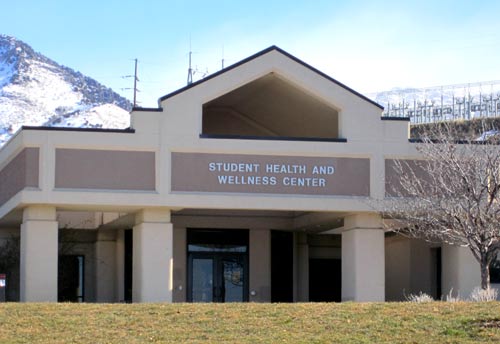Health care confusion: USU students, faculty weigh in on health care debate
February 12th, 2011 Posted in Arts and LifeStory and Photo by Shirrel Cooper
LOGAN—The bill was signed into law nearly a year ago, and information regarding this controversial legislation has been available for nearly as long, yet most Americans who hold strong opinions about the Patient Protection and Affordable Care Act don’t really know what’s in it.
Now that the new health care reforms have taking effect in 2011, not only are partisan opinions heated, but it is becoming more crucial for Americans to learn how the new health care bill will affect them.
Julee Webb, a family finance intern with Utah State University’s Extension Service, says information about the health care bill is easily accessible to the public. Webb has been researching changes under the new law, and recommends that others do the same.
“Go to the website,” which explains the new legislation, Webb suggests. New elements include changes in Flexible Spending Account money, an increase in the number of individuals who are eligible for health care insurance and an opening in free preventative care.
These changes were needed, Webb says.
“Things have been scrambled,” she said about the health care legislation. “Now states have been forced to think about health care.”
 Webb’s optimism about the new bill is shared by Lauren Harper, a freshman at USU who is majoring in International Studies.
Webb’s optimism about the new bill is shared by Lauren Harper, a freshman at USU who is majoring in International Studies.
“I was born with a heart condition,” Harper said. “My mom and my brother have asthma. Now we can get health care easier than we could before because we can’t be turned away because of preexisting conditions.”
Harper said she listens to National Public Radio and gathers most of her information about the bill from the media.
“If you want to hear the ‘job killing health care’ side, go watch Fox news,” she said, referring to the name of a Republican proposal to repeal the Obama health care measure. “If you want to know what’s really in the bill, go to a nonpartisan news source.”
No matter how people figure out the bill, she thinks it’s imperative for people to learn more about it.
“I think (college students) should lean more because it’s about to affect us,” Harper said. “For me it’s good to know I won’t be turned away because of my preexisting conditions.”
Harper wishes more people would learn for themselves about the bill, especially before arguing for or against it.
Dr. James Davis, executive director of USU’s Student Health and Wellness Center, said he hasn’t read the bill himself, but he says he knows about changes as they are implemented. He gathers his information about the bill from other professional organizations. He said he doesn’t think there are adequate resources about the law available to the public.
“(The bill) was brought on by surprise, behind closed doors, very quickly,” Davis said. “Even the people who voted for this bill did not fully understand it.”
In some ways, the doctor said, the law has the potential for causing greater harm than good, with hidden fees, loss of freedom of choice and with not addressing issues like end-of-life care.
As a health care professional, Davis said he doesn’t know yet if the bill will be helpful to the American public. Opinions on that remain highly divided.
Political science professor Michael Lyons is lukewarm about the new bill, but does not like the way the legislation was handled.
“I believe access to health care should be a right to every American,” Lyons said, but he worries that the new law imposes layer after layer of bureaucracy.
There is plenty of information about the law on the Internet, he said, but with all the conflicting claims, it’s confusing.
“A lot of it is inaccurate, speculative and hard to understand,” Lyons said. Young people will be the primary beneficiaries of the health care bill, but that’s not an issues that is on the forefront of their minds.
“I don’t know a whole lot about the bill,” said Raul Pelagio, a sophomore majoring in political science. “But I’ve talked about it in classes.” He believes that as a whole, the changes are a good thing and he supports the new law.
“The major aspects of the bill are good,” he said, “but I think the details need to be fixed.”
Katie Lovendale, a junior in special education, knows some things about the new law but is fully supportive of the changes.
“Go socialized health care!” Lovendale said. She feels like health care is a right for everyone and that the new reforms will help guarantee that people can get it.
“Our system has become so bureaucratic and corrupt,” she said. “People deserve health care.”
More information as well as the full text of the Patient Protection and Affordable Care Act are available online.
TP
Tags: Health care reform, Obama care

Sorry, comments for this entry are closed at this time.